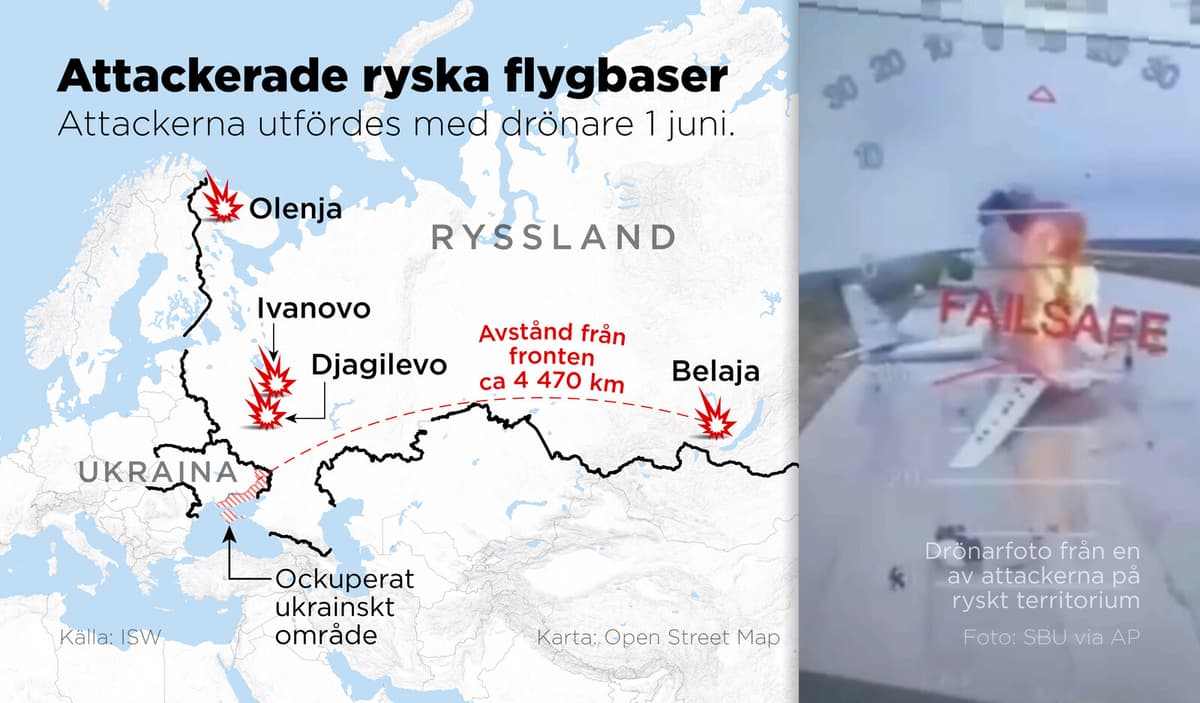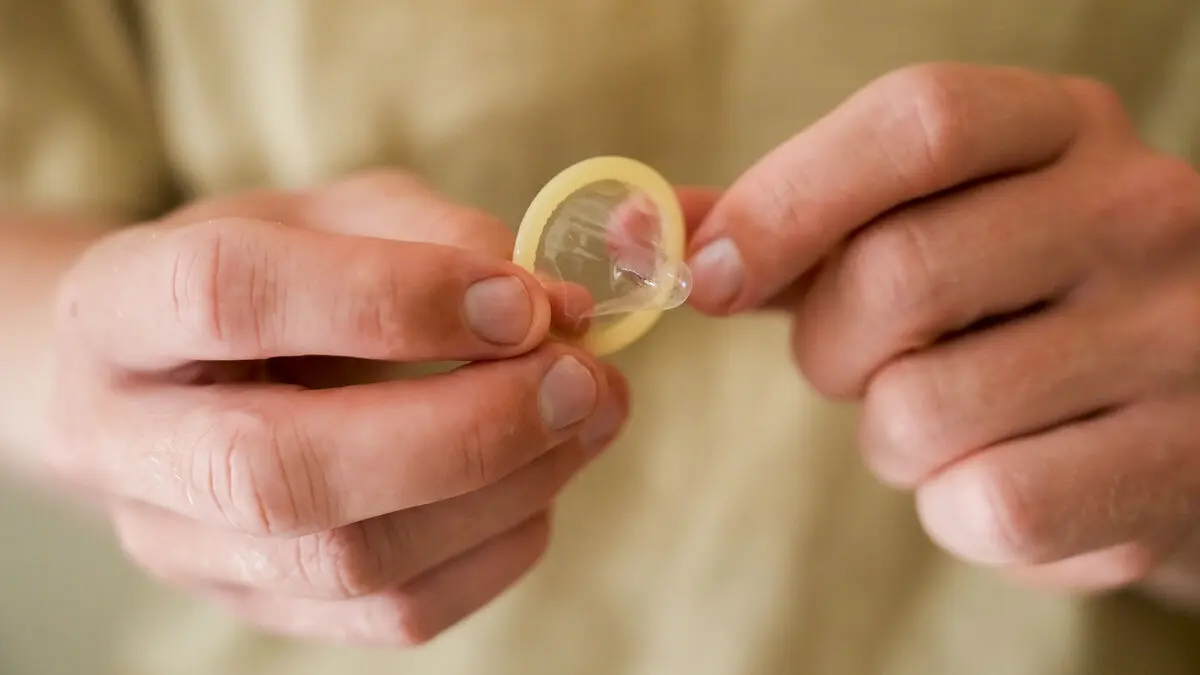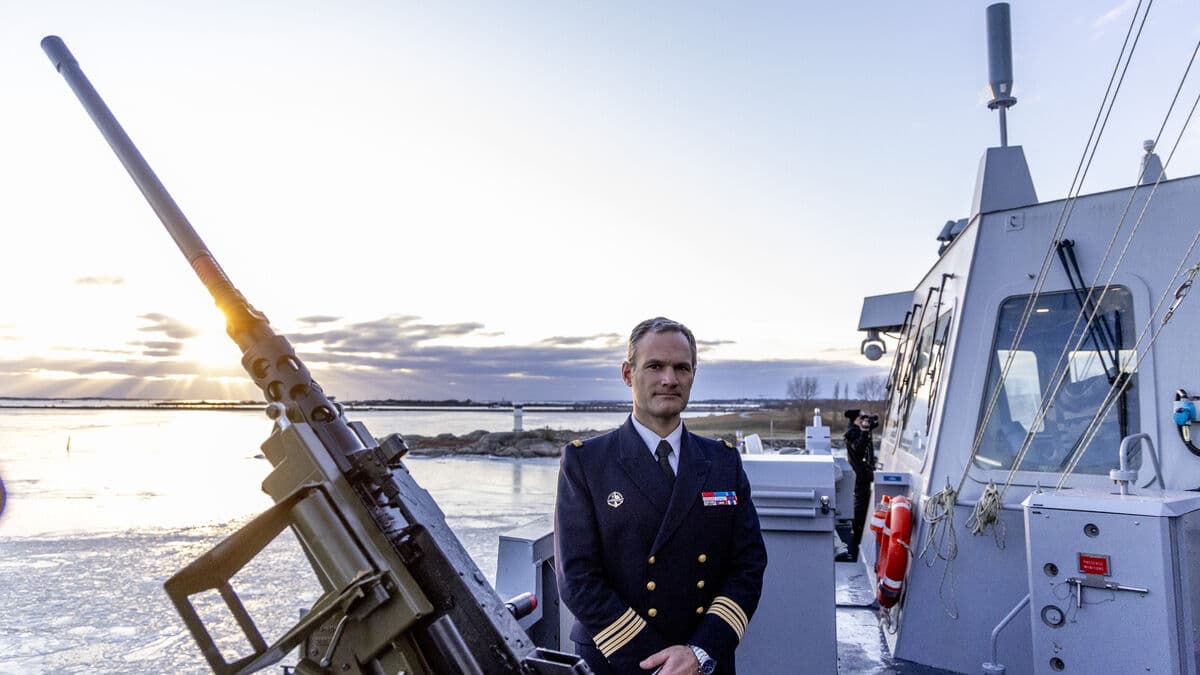The attack on the Russian bomber planes is said to have been planned for a long time. The drones had been smuggled into Russia in advance; so had the wooden crates in which they were hidden. Then they were transported to locations near their respective goals - one of them in Siberian Irkutsk, nearly 450 miles from the front in Ukraine.
When the attack got the green light, the crates' lids were removed by remote control and the drones towards their goals: bomber planes parked at four different airbases.
Both unusual and spectacular, thinks Oscar Jonsson, researcher in war science at the Defence University.
The complexity - that they managed to conceal and get in these different modules that they fired the drones from - but most of all the effect: that they managed to strike at the Russian strategic bomber fleet.
Via Kazakhstan
The drones are believed to have been brought into Russia via Kazakhstan, says Jonsson. The former Soviet state east of the Caspian Sea is often used to circumvent the sanctions against Russia, which means enormous amounts of traffic and limited opportunities to control everything that crosses the border.
Sunday's attack is being celebrated in Ukraine. It is the bomber planes that are behind the almost daily Russian robot attacks on Ukraine.
They are a huge problem for Ukraine. They lack both air defense missiles and air defense systems to be able to shoot them down.
Russia has thus clearly suffered a major defeat, assesses Jonsson. With relatively small means, Ukraine managed, according to their own statement, to take out more than a third of Russia's strategic bomber fleet.
I think that's highly exaggerated. But even if we say it's about 10-20 percent, maybe up to 30, it's still very much. Most of these planes are Soviet-era planes that can't be produced anymore, he says.
It's a significant blow.
Humiliating
Russian military bloggers are now raging against the preparedness. Roman Alechin, blogger and former advisor to the governor of the Kursk region the whole thing "Russia's Pearl Harbor" and is demanding a sharp retaliation.
"I hope the response will be the same as the US response to the attack on their Pearl Harbor, or even harder," he writes on Telegram.
The Japanese surprise attack on the naval base Pearl Harbor in Hawaii in 1941 led to the US attacking Japan with atomic bombs.
Oscar Jonsson does not want to speculate about a possible Russian response. But the attack is embarrassing for Russia's President Vladimir Putin, he says.
It's clear that it's humiliating for Putin, but I don't think one should draw too large conclusions.






